Educating Sommeliers Worldwide.
By Beverage Trade Network

Studying winemaking combines passion, precision, creativity, and science. When it comes to selecting the ideal university for their viticultural and enological studies, aspiring vintners have a limitless number of choices.
In this informative article, we will look at the many landscapes of winemaking education around the world, including the distinct programs, expertise, and opportunities offered by internationally recognized universities. Join us as we find the secrets of the world's greatest winemaking schools, from grape growth science to the art of perfect wine blending.
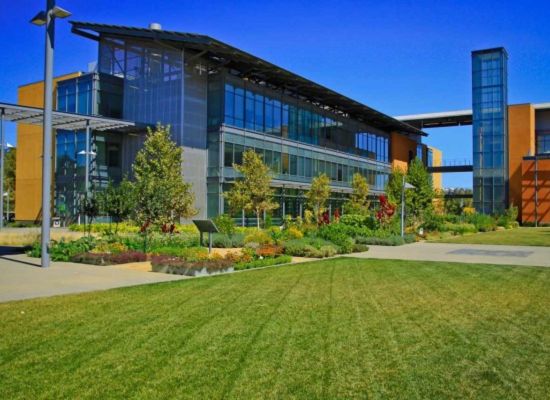
Image: University of California, Davis
The internationally acclaimed Winemaking Certificate Program offered by the University of California provides learners with the knowledge, confidence, and practical insights required to pursue a passion for winemaking. This curriculum, built with convenience in mind, offers online access, allowing students to adjust their education to their schedules.
While oriented toward those involved in production winemaking, the course's combination of academic understanding and real-world commercial application is beneficial to anybody aspiring to a career in the wine industry. The major goal of the program is to lay the scientific and technological groundwork for wine production, with a focus on understanding the chemical and microbiological processes involved.
Participants learn to foresee the impact of winemaking decisions on quality and style, assess wine qualities systematically, evaluate stability and its effects on shelf life, understand sensory perception mechanisms, and apply fundamental principles of analytical chemistry and microbiology. A thorough awareness of the fundamental aspects of developing high-quality wine grapes is also emphasized, making this program an invaluable resource for individuals seeking a holistic understanding of the winemaking process.
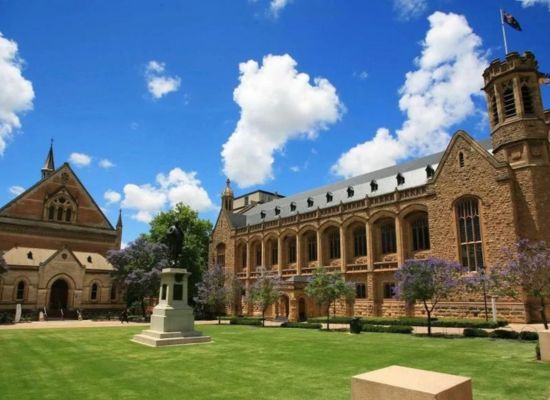
Image: University of Adelaide
The University of Adelaide, founded in 1874, is one of Australia's oldest and most prestigious schools and is widely regarded as a center of intellectual achievement in South Australia. The university's Waite campus, hidden in the Adelaide foothills, is well-known for its emphasis on agricultural research and development. Notably, it houses the Hickinbotham-Roseworthy Wine Science Lab, the Waite Sensory Evaluation Lab, and the Coombe Vineyard. This campus provides students with a one-of-a-kind educational environment in which enology, viticulture, and wine marketing are integrated into the curriculum.
The university provides a variety of undergraduate and postgraduate courses geared toward the wine industry, including Bachelor's programs in Viticulture, Oenology, and Wine Marketing, as well as Graduate Certificates, Diplomas, and Master's degrees in Oenology, Viticulture, and Wine Business. The curriculum blends theoretical knowledge with hands-on experiences in a fully equipped winery and wine science lab. Students can specialize in a variety of areas, ranging from sophisticated viticulture technology to marketing and business-related subjects, ensuring a truly world-class educational experience.
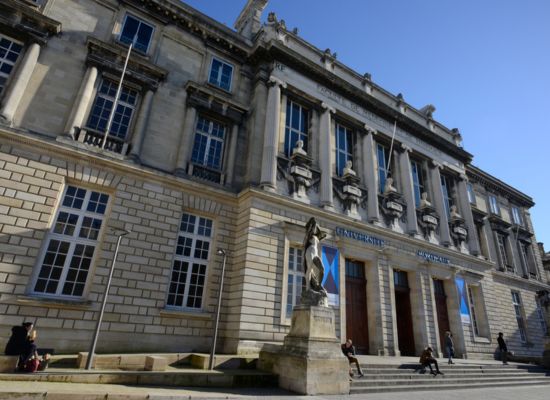
Image: University of Bordeaux
The University of Bordeaux is recognized worldwide for its outstanding winemaking courses, which provide a one-of-a-kind and specialized education in viticulture and enology. With Bordeaux as a globally recognized wine area, these courses provide students with a unique opportunity to learn from industry experts, participate in hands-on practical experiences, and obtain a full understanding of the entire winemaking process. Students benefit from the university's strong connections to the local wine sector, which includes well-known vineyards and wineries. The curriculum includes vineyard management, grape types, fermenting procedures, and business aspects of the wine industry. These schools prepare graduates for successful careers in winemaking, whether as winemakers, vineyard managers, or other wine industry professionals.

Image: Cornell University
Cornell University's hands-on course, designed for both industry experts and wine aficionados, guides students through the difficult winemaking process, taking them from grape to glass. Participants of the course learn how to identify wine components and analyze their impact on perceptions under the supervision of Cornell's globally recognized industry specialists. The training focuses on personal palate exploration and sensory evaluation, including sight, smell, taste, and touch. Attendees get to learn about various wine-growing techniques and how location and climate interact to influence grape development.
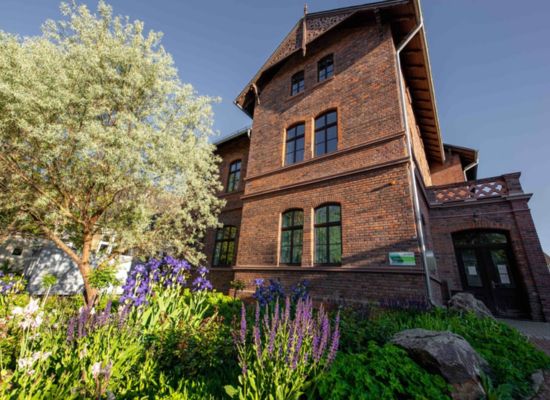
Image: Geisenheim University
The BSc degree program in International Wine Business under Geisenheim University effortlessly combines business skills with an extensive understanding of viticulture and enology. Offering a fully-rounded curriculum, students learn about business management, marketing, and winemaking, as well as language and project management skills. The program's foundation is set in the first year, with modules on Business Operations, Economics, Marketing Fundamentals, Law, Sensory Evaluation, and World Wine Markets.
Wine and beverage marketing, marketing projects, business management, management accounting, viticulture, and enology are all required modules in the second year of study. Students can further build their professional profiles by selecting from over 30 semi-compulsory and optional modules covering topics such as investment and corporate finance, e-commerce, and market research.
The program focuses on worldwide markets with country-specific marketing initiatives and language classes. Practical experience, an important part, is achieved during a minimum of 12 weeks, either overseas or at an international company in Germany, allowing students to apply theoretical knowledge in real-world situations at wine or beverage companies. With a focus on preparing students for professional problems, the curriculum incorporates projects, case studies, industry trainers, and excursions to establish early and meaningful industry relationships.
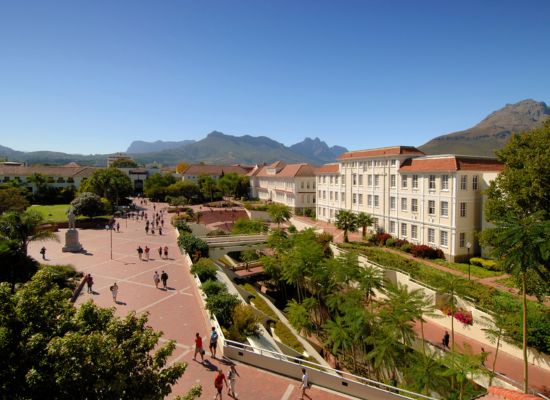
Image: University of Stellenbosch
The BScAgric qualification is awarded after completing a four-year bachelor's program in Grape and Wine Sciences. Grape and Wine Sciences at the University of Stellenbosch examines the vine and its organs and applies this knowledge to the scientific manipulation of the plant to create sustainable product types that may be used to make unique wines while remaining environmentally conscious. Furthermore, it addresses the integration of a complete understanding of the chemical and biological processes involved in the production of wine and brandy goods to ensure natural resource sustainability. In this field, you will be prepared to work in the grape and wine industries.
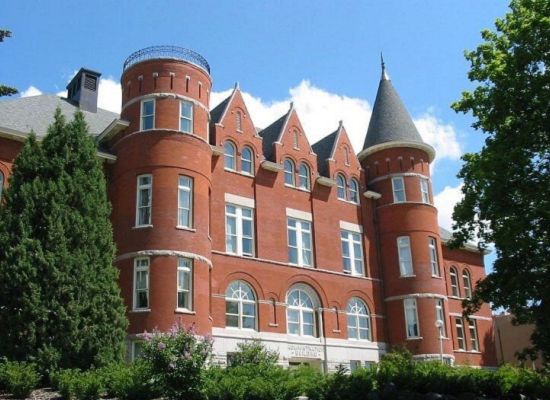
Image: Washington State University
Multidisciplinary and hands-on: an undergraduate education in viticulture and enology is intended for future wine industry executives. Students in the Viticulture & Enology Program are passionate about grape growing, winemaking, and the wine industry. Furthermore, they contribute to essential research that benefits the wine business.
The V&E scientific curriculum was the first of its kind in the Pacific Northwest. This curriculum gives students the technical, scientific, and practical skills they need to grow high-quality grapes and make premium wines.
Wine-stained hands are essential for a V&E education, which is why all junior and senior students study at the Ste. Michelle Wine Estates WSU Wine Science Center and the Albert Ravenholt research and teaching vineyard on the Tri-Cities campus in Richland, WA. Located in the heart of Washington wine country, the Wine Science Center also acts as a hub for students to develop important relationships with industry professionals.
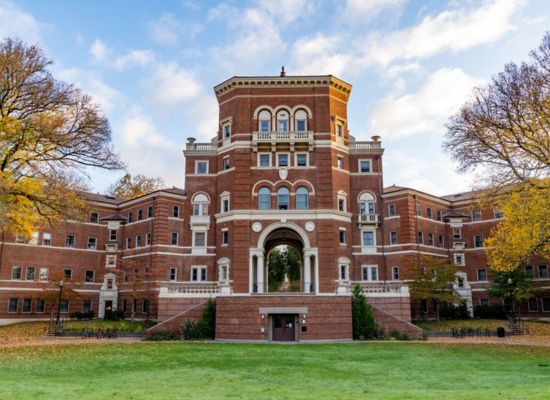
Image: Oregon State University
At Oregon State University, the Enology and Viticulture program provides a holistic approach to wine production that includes two critical disciplines. Enology courses give students a scientifically sound understanding of the complexities of wine production. Complementary education in horticulture, botany, crop, and soil science helps students understand the relationship between grape cultivation and winemaking. Graduates of this option will have a well-rounded knowledge base and practical abilities, allowing them to work independently and successfully as winemakers or trained professionals in domains that need wine science competence.
This program's core courses include Grapevine Growth and Physiology, Principles and Practices of Vineyard Management, Soil Science, Introduction to Wines, Beers, and Spirits, and Wine Production Principles, Analysis, and Sensory Evaluation. These courses provide students with the necessary tools to navigate the complicated world of wine, combining theoretical knowledge with hands-on experience for a successful career in the business.

Image: University of Montpellier
The University of Montpellier is well-known for its wine-related courses, which provide a thorough understanding of viticulture, enology, and the wider wine business. These courses frequently cover all aspects of wine production, from grape farming to the winemaking process. Students often learn about the scientific and technical aspects of viticulture, wine chemistry, sensory evaluation, and wine industry business practices.
The university may work with local vineyards and wineries to give hands-on experiences that allow students to apply their theoretical knowledge in real-world settings. Courses may include both undergraduate and postgraduate choices for those interested in pursuing careers in winemaking, vineyard management, wine business, or related professions.
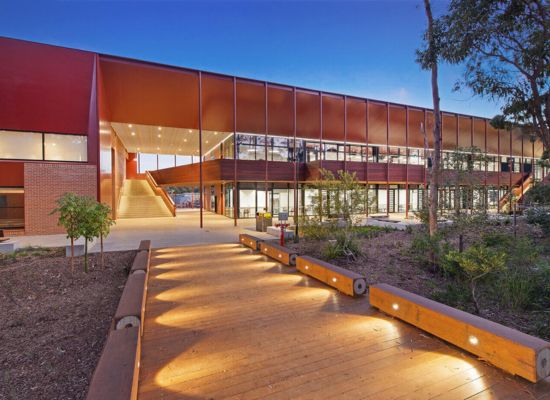
Image: Charles Sturt University
Charles Sturt University's Bachelor of Wine Science curriculum effortlessly combines science and creativity to develop skills in winemaking, wine science, and assessment. With a four-decade history, the institution has delivered courses that uniquely combine science, business acumen, and practical training, giving wine industry professionals a competitive advantage.
Their curriculum, which can be completed part-time over six years or fast-tracked online or through blended learning, provides students with a scientific foundation in chemistry, microbiology, and plant science. Their wine program includes wine production, chemistry, and sensory aspects, helping students to understand the sensory characteristics of wines and build a scientific approach to winemaking.
The emphasis on utilizing technologies for innovation in wine production, microbiology, and winery engineering prepares students to impact wine types and improve overall quality. Charles Sturt University's substantial presence in the wine sector, with over 1000 graduates holding key positions worldwide, demonstrates the program's success.
Students can combine coursework with real-world experience, apply newly acquired information to their existing employment, and even explore international contexts through foreign placements. This curriculum, whether taken part-time or through a fast-track option, accommodates a wide range of learning styles, allowing students to manage employment and academic responsibilities.
When selecting a university, it's vital to consider the curriculum, faculty expertise, research opportunities, internships, and industry connections to ensure they align with your professional objectives and winemaking interests. Each program may have distinct strengths and specialties, thus selecting the best one is based on personal preferences and career objectives.
[[relatedPurchasesItems-61]]